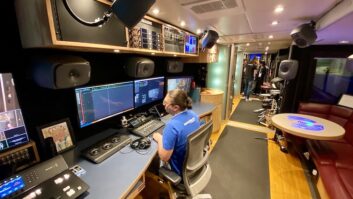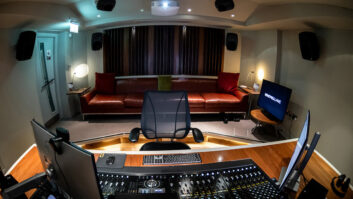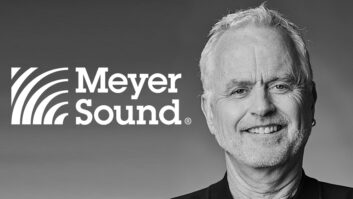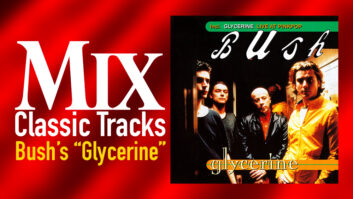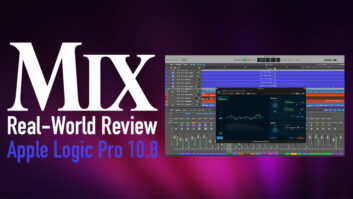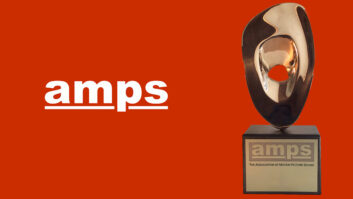
In Nashville, but off of the beaten path — bothgeographically and client-wise — is Alex the Great Recording, aresidential, rock-oriented studio owned by Brad Jones and RobinEaton. “Our strategy has been adaptability toward lowerbudgets,” says Jones. “Studios that have to make a monthlynote on an expensive console are having a hard time. We have neverbought a fancy console. We’ve just used a Mackie; now in the age of ProTools, we hardly even use that. We have bought fancy outboardmic pre’s and microphones and vintage instruments. That’s been oursurvival trick, coupled with the fact that we’ve always catered toindie rock bands. We’re in Nashville, but not a part of Music Row. Wedon’t do country. Actually, we’re in Berry Hill, where the rent is athird of what it is on Music Row. All of these things have made us moreresilient.”
Alex the Great is in a homey converted warehouse with a built-inapartment. “We offer a good rate that includes accommodations fora small band,” continues Jones. “Most studios with livingaccommodations are out in the country, but we’re right in town. We havea big enclosed courtyard with lots of plants and no sign out front. Theartists like that they can create their own world and not be bothered.Another edge is that we have all kinds of interesting vintageinstruments. We want to seduce the musicians, as well as the engineers.And musicians like being surrounded by cool, old stuff. They all tellus they like our vibe.”
In Portland, Ore., Larry Crane publishesTape Opmagazine and runs Jackpot Studios, which specializes in analogtracking. “A lot of the work we do is rock ‘n’roll-oriented,” he observes. “People come to us asking for‘that tape sound.’ I actually think that there’s somewhat of abacklash to the proliferation of small digital studios. I wanted to dosomething different that would set us apart.”
Crane has added some digital gear because, “A lot of peopleare coming in to track drums and then taking the tracks home to acomputer to add the rest of their parts. Sometimes they come back tomix, or sometimes they just rent gear from us to mix athome.”
Portland’s lower cost of living has contributed to the growth of alively music scene; it’s also part of what’s enabled Crane to carve outa niche. “There aren’t a lot of studios in the Northwest,”he says with a laugh. “Here, my lease is super-affordable, andthere’s a good live music scene that keeps me busy.
“There is something about having a more personality-drivenstudio,” he admits. “If you have an engineer who builds astrong local reputation, the studio is more than just a studio: It’sgot a face to it. A lot of places that are put together as commercialstudios — with an owner/manager who hires engineers — are alittle more generic. Musicians and bands don’t respond to that as well.There are studios here in town like that. They’re great places withbetter gear than I have, but there’s no buzz about them.”
In Williamsburg, Brooklyn, Mission Sound, fitted with a Neve 8026— a tracking console originally built for Air Studios —also specializes in live band recording. Recently, owner OliverStraus increased the volume of his business by forging relationshipswith a number of publishing companies. “I’m happy to say that wedo almost exclusively what I’ve always done, which is livebands,” says Straus. “What’s different now is, we’reworking with publishing companies on a lot more of the initial,developing aspects. We’re definitely doing more volume. Another benefitis that people tend to get ‘married’ to us. In many cases,we develop clients because, due to the quality of what we do, many ofour demos go right to CD. We work very fast, and we get a good sound totape or Pro Tools. The relationships we’ve developed with songwritersand publishers have also led to some soundtrack work for us.”
Straus comments on the trend for artists to present finished productto labels: “There’s been a philosophical and strategic changewith the producers and writers I work with. They want to get it rightthe first time. Except in a very few instances, there isn’t the bigpayoff budget to be gotten anymore. And because of the way music ispigeonholed and how marketing departments can have final say, artistswant to present who they are from the get-go. They don’t have theluxury of figuring out who they are after they’re signed. We’re on amission to preserve the integrity of the music, and it also helps keepthe fun in the studio!”

